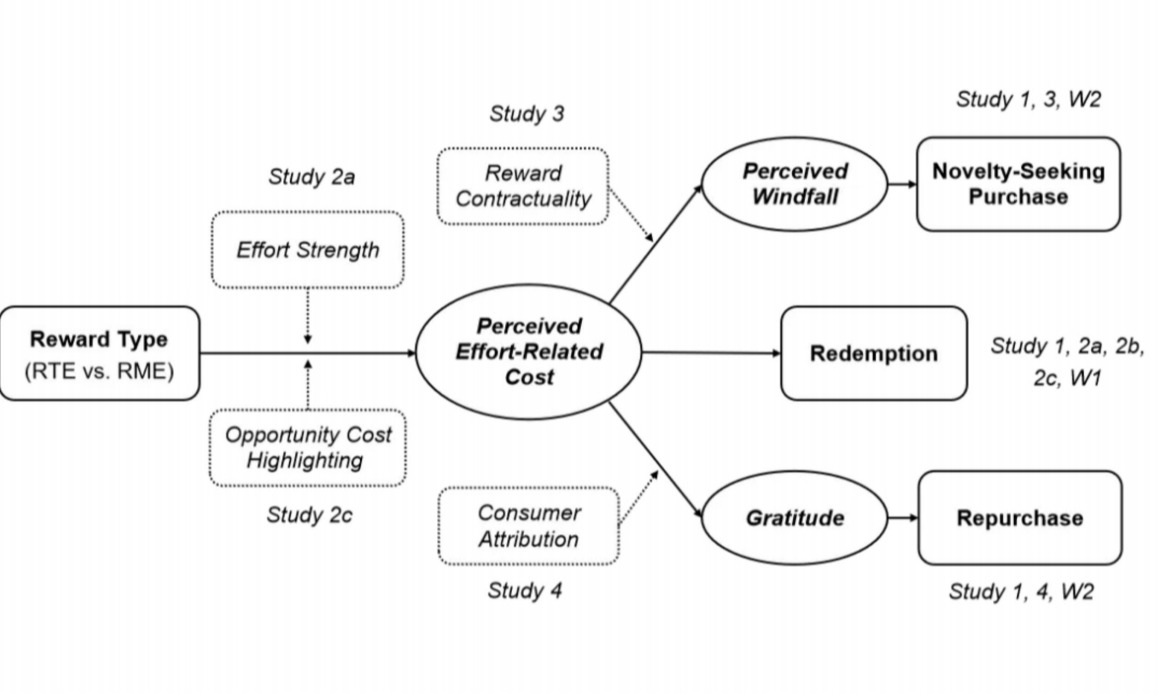Professor Shou Zhigang and his research team from our School of Economics and Management have made significant contributions to marketing science with their latest study published in the Journal of Marketing Research (JMR). Their paper examines how consumers perceive and utilize different types of rewards in loyalty programs, particularly comparing time-based versus monetary rewards.
The research reveals that consumers consistently undervalue time-based rewards compared to monetary ones. Through a series of six experiments, the team found that time rewards are 23% less likely to be redeemed, but when they are redeemed, customers show an 18% greater preference for novel products. These findings have important implications for businesses designing customer engagement strategies.
From a practical perspective, the study suggests companies should carefully consider whether to offer time-based or monetary rewards based on their specific goals. For platforms relying on user engagement like TikTok or Amazon, time-based rewards may be more effective for driving certain behaviors. The research also shows that simple reminders about the value of customers' time can significantly impact redemption rates.

This publication represents a notable achievement, as JMR is one of the most prestigious journals in the marketing field, accepting only about 60 papers per year globally. The success highlights the growing impact of Chinese marketing scholarship on the international stage and our school's leadership in consumer behavior research.
The full study is available online through the Journal of Marketing Research website. This work continues Professor Shou's influential research program examining retail promotion strategies and their effects on consumer welfare.
Publication Title: Rewarding Money or Time? The Sunk Cost Effects of Customized Rewards in Loyalty Programs
Journal: Journal of Marketing Research (UTD24), published online
Link: https://journals.sagepub.com/doi/10.1177/00222437251353156
This research achievement is presented by the Office of Scientific Research and Discipline Construction
Editor: Song Lan
Reviewer: Liu Yanqing
 Faculty and Staff
Faculty and Staff Academics
Academics International Exchange
International Exchange







